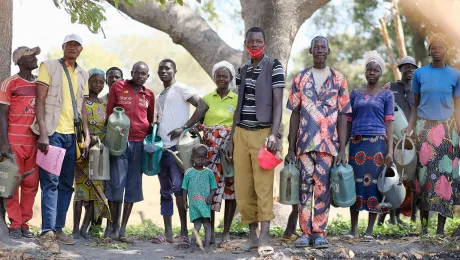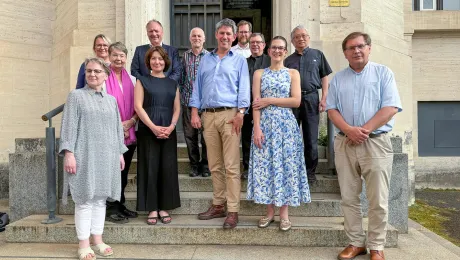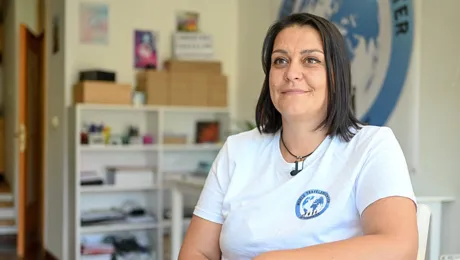Others have crossed national borders on their way to safety. They have found a new home in a refugee camp or host community. Many are without social security and proper health care, depend on daily labor, and are in danger to be exploited or abused.
The COVID-19 pandemic has made life even more difficult for those without a home. Camps and refugee shelters are overcrowded, leaving no opportunity to physically distance. Movement restrictions also make it more difficult to provide humanitarian aid. Above all, COVID-19 has also drawn public attention and funding away from the big refugee crises of our time.
Religious leaders, faith-based organizations such as the LWF, and faith communities can play a major role in integrating refugees into their host communities, in reducing conflicts and supporting those who have lost everything. They can share vital information, which may be more likely to be accepted than from other sources. They can provide pastoral and spiritual support during emergencies and can advocate for the needs of vulnerable populations.
The COVID-19 pandemic and the recent anti-racism protests have shown us how desperately we need to work for a more inclusive and equal world. Since it’s founding in 1947, during the big European refugee crisis after World War II, working for refugees and displaced people has always been the core of LWF’s mission.
We have asked refugees and faith leaders to speak. We invite you to read and share under the hashtag #LWFwithRefugees, and to join the global campaign by the United Nations High Commissioner for refugees (UNHCR): Every Action Counts
Contact
Share with us your stories, photographs and insights using the #WithRefugees


